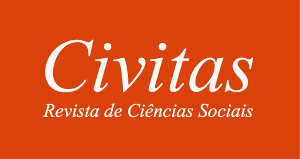Abstract:
The question of the contemporary political relevance of Critical Theory points to a deeper problem: the fundamental relationship between Critical Theory and politics. Their relationship status has to be regarded as complicated. Politics, so a widespread judgement goes, has no place in the cosmos of Critical Theory: where the place for a theoretically reflected analysis of politics could or should be, so the repeatedly heard reproach (for example, Howard 2000Dick, Howard. 2000. Political theory, Critical Theory, and the place of the Frankfurt school. Critical Horizons 1(2): 271-280. https://doi.org/10.1163/156851600750133379.
https://doi.org/https://doi.org/10.1163/...
), there is a gap in the center of the historical “Frankfurt School” (Wiggershaus 1995Wiggershaus, Rolf. 1995. The Frankfurt school: Its history, theories and political significance. Cambridge, MA: MIT Press., Jay 1973Jay, Martin. 1973. The dialectical imagination: a history of the Frankfurt school and the institute of social research, 1923-1950. Toronto: Little, Brown & Company.) around Max Horkheimer and Theodor W. Adorno. In the following, we do not merely want to attest another “politics deficit” to “classical” Critical Theory, but rather, on the one hand, to measure the exact relationship to the object of politics, and on the other hand, to take a look at the current state of theory, which proves to be quite diverse. To ask whether and how a Critical Theory of politics is possible today does not, however, mean merely reflecting on current developments. This important task, we are convinced, first needs a theoretical foundation in order to be able to exploit the full potential of the approach. Accordingly, it is necessary to explore how, under current circumstances, the classical programmatic of Critical Theory can be linked to politics. In order to shed light on the problems with which contemporary thinking about the possibility and form of a Critical Theory of politics is confronted, we will begin by addressing the question of the place of politics in Critical Theory and the politics of critical theorists in some detail, and outline five theoretical levels (theoricity, aspiration, programmatic, theoretical methodology, temporal core) and three major paths (deepening, reorientation and return) on the basis of current approaches subsequently.
Keywords:
Critical Theory; Frankfurt School; Political theory; Sociological theory; Politics
